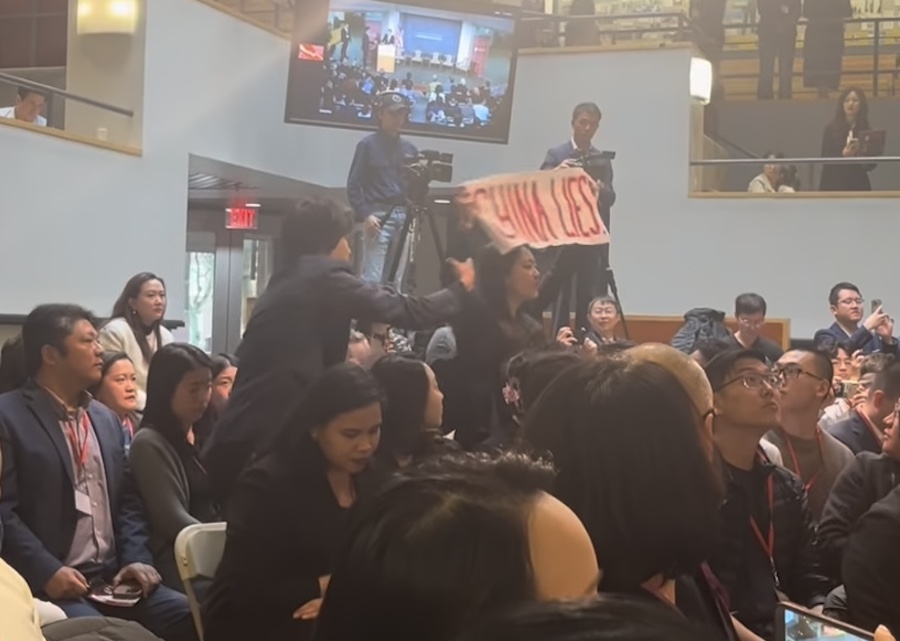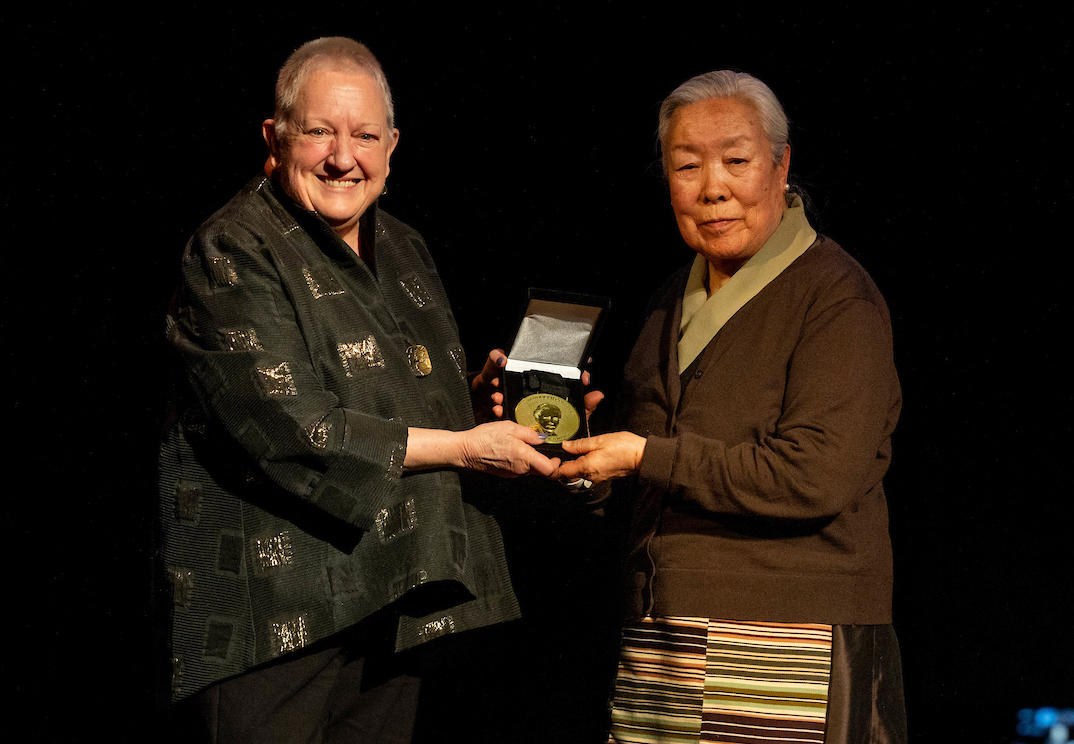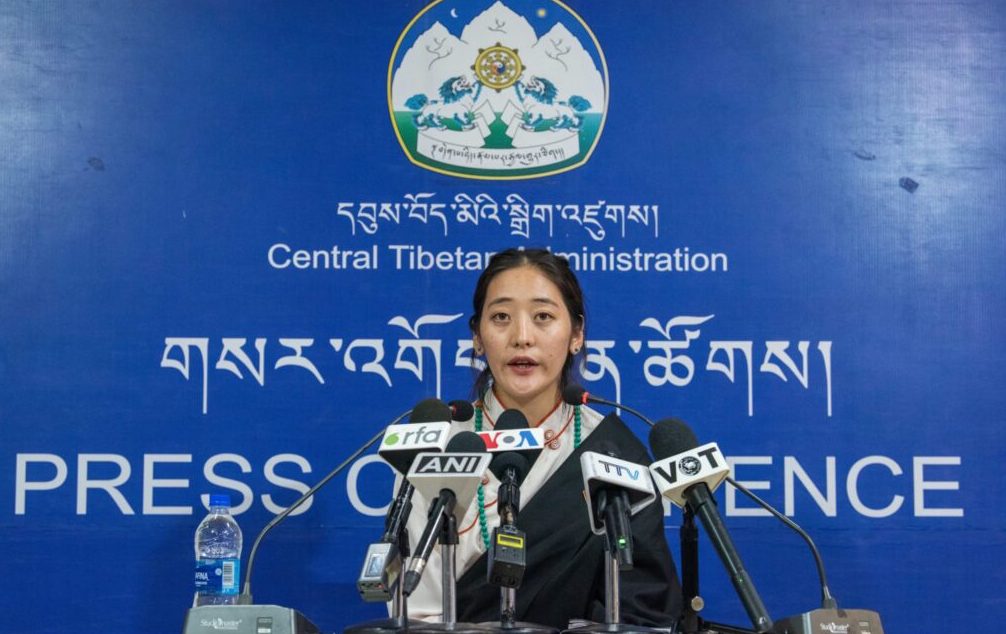Agenda item 9 entitled: “Question of the violation of human rights and fundamental freedoms in any part of the world.”
European Union: By the Ambassador of Greece, European Presidency on behalf of the European Union and the Acceding Countries Cyprus, the Czech Republic, Estonia, Hungary, Latvia, Lithuania, Malta, Poland, and the Slovak Republic and Slovenia and the Associated Countries Bulgaria and Romania.
“The human rights in China remains a cause of concern, despite some positive developments in the course of last year. The continuing engagement of China with the international community in various fields, certain progress in relation to the establishment of the rule of law and the development of the legal system, including the submission to the NPC of a first ever draft Civil Code and the strengthening of the legal training of judges, are encouraging signs. Moreover, China has displayed willingness to enhance its cooperation with the UN human rights mechanisms. In this connection, the EU invites China to agree on dates at the earliest opportunity for the visits of the mechanisms to which formal invitations have been extended. The EU notes that several high-profile Tibetan political prisoners have been released prior to the completion of their sentence and that a visit of two special envoys of the Dalai Lama in Beijing and Tibet took place last September.
“However, China has not yet proceeded to the ratification of the International Covenant and Political Rights, while it maintains its de facto reservation on art. 8. 1 (a) of the International Covenant on Economic, Social and Cultural Rights, which guarantees the right to form and join a trade union of one’s choice. The extensive use of the death penalty, the continuation of the “strike hard” campaign, the widespread use of torture and arbitrary detention, including the practice of “re-education through labour”, the repression of the freedom of expression, religion and association with the ongoing violations of the human rights of pro-democracy, labour and Internet activists, proponents of free trade unions and followers of underground Christina churches and the Falun Gong, represent particularly troubling features of China’s human rights record. Equally disturbing is the deprivation of religious and cultural rights in Tibet, as well as the violation of human rights in Xinjiang, fanned by the intensification of the “strike-hard” campaign, and often under the cloak of the fight against terrorism. The trial of Lobsang Dhondup and Tenzing Deleg Rinpoche raised great concern about due process and the application of the death penalty. The EU ahs already expressed its dismay at the way in which this case was handled, and its disappointment that the Chinese authorities did not keep them informed of developments. It felt that this was a breach of the trust built up by the EU/China Human Rights Dialogue. The EU reaffirms that such Dialogue is an acceptable option only if it produces progress on the ground and measurable results. We underline the need for the Dialogue to be based on a genuine demonstration of mutual confidence.”
Australia: “We acknowledge China’s effort to build greater transparency and accountability in its legal and administrative systems. We also acknowledge China’s progress in recognising social and cultural rights. But we are concerned by action in the judicial system against individuals and groups exercising their right to freedom of expression and assembly. We are deeply concerned that many have been charged with terrorism for exercising those rights. We particularly urge China to ensure the right so fits ethnic minorities, including the Uighur and Tibetans. Australia believes that its bilateral dialogue with China is the most effective way to deal with differences over human rights, and that it can achieve more.” (Statement by HE Mr Mike Smith, Ambassador)
Norway: “Norway is engaged in an ongoing human rights dialogue with the People’s Republic of China. We appreciate China’s effort to improve the legal system and the economic system and social conditions for its citizens. In spite of these positive developments, we still have concerns regarding certain aspects of the human rights situation in China, including the extensive use of capital punishment. My Government also attaches great importance to the preservation of the natural environment, culture and religious identity of the Tibetan people.” (Statement by Mr. Sverre Bergh Johansen, Ambassador).
Canada: “In China, we are very concerned about continuing reports of the persistent scale and scope of restrictions on freedom of expression, association and religion, especially in Tibet and Xinjiang, and about the wide spread use of the death penalty, particularly following closed trials. Harsh sentencing of dissidents and members of spiritual groups, and restraints on the activities of labour unions also raise concerns. At the same time, we fully support China’s continuing attempts to raise the standard of its citizens by modernising its economy and relaxing social controls. We encourage China to accord the highest priority to ratifying and implementing the Covenant on Civil and Political Rights, and to implementing the Covenant on Economic, Social and Cultural Rights without reservation.” (Statement by Ambassador Christopher Westdal).
New Zealand:- “New Zealand welcomes continued advances in economic and social conditions in China. We hope that similar progress will be made towards greater civil and political freedoms. China’s willingness to cooperate with the special mechanisms of the Commission on Human Rights is encouraging. We commend the commitment of Chinese leaders to developing a society under the rule of law, evident in the ongoing reforms of the judicial system and tackling of corruption. New Zealand continues to be concerned, however, about restrictions on freedom of expression and religion, and reports of arbitrary arrest and detention and the ill treatment of prisoners. We also continue to urge China to enter into dialogue with Dalai Lama and to involve the Tibetan people more fully and directly in decisions regarding their development.” (Statement by New Zealand Representative Tim Caughley)
Tibet Bureau Geneva









